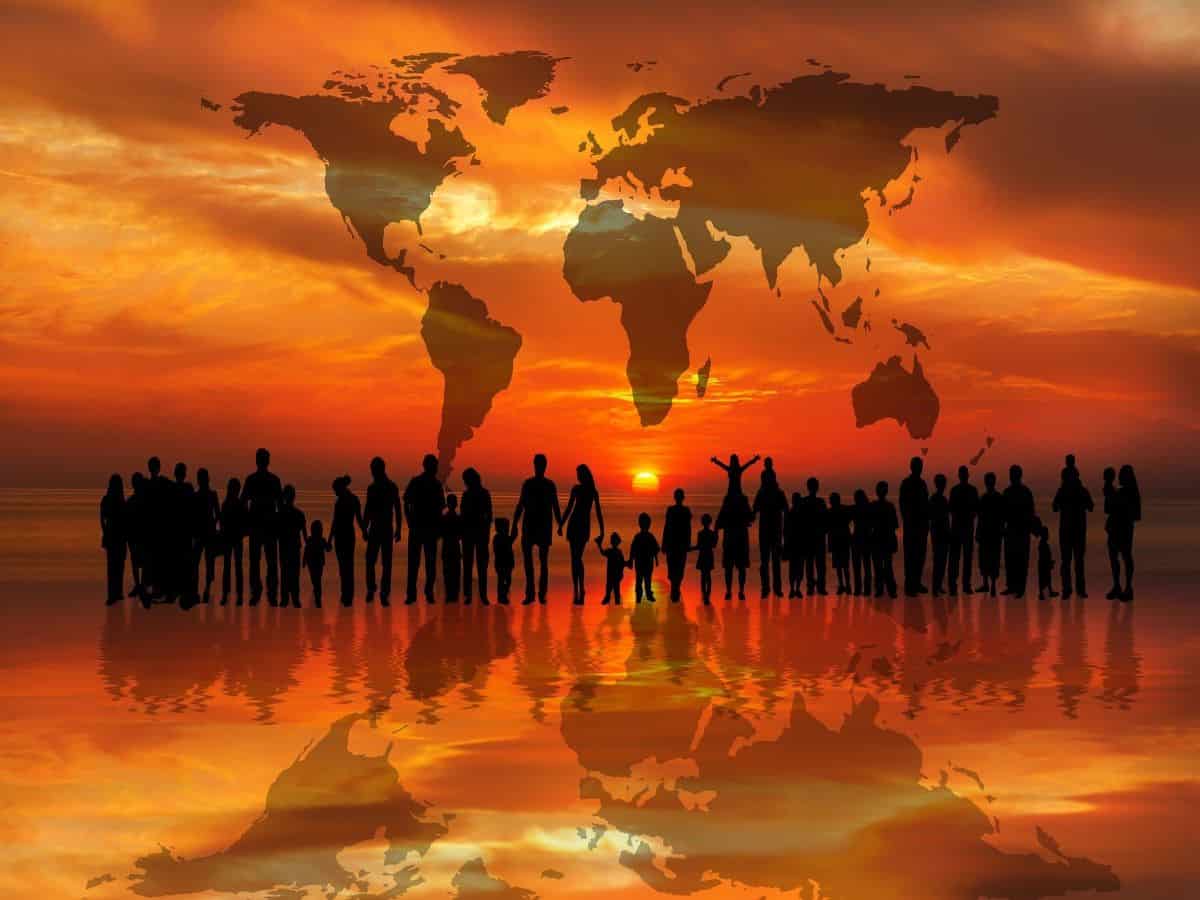

Population growth is no longer a bad word.
At least that is what would seem to be the message being conveyed by UNFPA (United Nations Population Fund).
The UNFPA is the United Nations sexual and reproductive health agency with the motto of its mission to deliver a world where every pregnancy is wanted, every childbirth is safe and every young person’s potential is fulfilled.
The world is today poised on an important milestone because within a few months the total population of the world will be touching 8 billion.
The human population has truly grown but what is the quality of life the human species is providing itself.
One thing is clear from the sheer growth of population that despite innumerable challenges both natural and man-made, Man has survived, re-produced, and densely populated different parts of the earth.
The human population has increased almost eightfold in little over 200 years from an estimated 1 billion global population in 1800 to crossing over to 8 billion, in 2022.
Climate change, armed conflicts, pandemic have all been broadly taken in its stride though substantial number of people live in penury and many suffering a lot particularly the poor.
Globally, poverty, ill health and environmental degradation continue to be the major challenges facing human kind.
Socio-economic and gender inequalities hamper humanity’s struggle towards its goal of an equitable world.
The population jump from 1 billion to 8 billion was possible primarily due to major advances taking place in the healthcare sector and the basic treatment modalities reaching to large percentage of population particularly to battle against infectious diseases which are known to have wiped out large populations at a go in earlier eras and lifestyle diseases with which suffer ct large populations today.
Modern medicine has to be squarely given the credit for drastic reduction in infant and maternal mortality and increasing life expectancy.
Dr. Natalia Kanem, Executive Director of UNFPA rightly says that reaching the 8 billion mark “is a success story, not a doomsday scenario”.
There are more people educated and living a healthier life today than at any previous point in history, she adds.
In completely changed outlook ‘people’ are seen to be the solution and not the problem.
Dr Kanem says, “investing in people, in their rights and choices, is the path to peaceful, prosperous and sustainable societies.”
What could be driving this change of attitude towards the subject of population which earlier used to be given epithets like “population problem”, “population explosion”
One reason could probably be the downward trend in population growth witnessed in some countries particularly in the western world including some countries showing a negative population growth. In the early 1970s, women had on average 4.5 children each; by 2015, total fertility for the world had fallen to below 2.5 children per woman.
In India too the fertility rate had reduced. The fertility rate has come down between 1950-2021 from 5.9 to 2.
With spiralling population growth becoming stable UN’s focus has started shifting from population control by all possible means with scary scenarios of milling people in the future to giving a call for nations to follow “people-centred” population policies with sexual and reproductive health and rights at their core.
World Population Prospects 2022 projects the world population to reach 9 billion in 2037 and a peak of 10.4 billion during 2080s.
Stabilising of population is a good sign for many nations but than quality of life will depend a great deal on the rights people enjoy.
No wonder, UN Secretary-General António Guterres has also stressed the need for working towards an ideal world for the 8 billion people, giving them “opportunities for healthier societies empowered by rights and choices.”
Too many people are still exposed to discrimination, harassment and violence, according to the UN chief.
Health, education and a pollution free environment must become parts of the rights of people rather than a priviliege.



